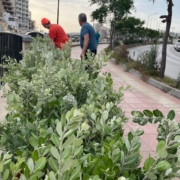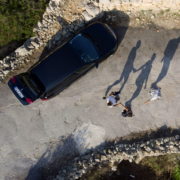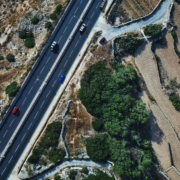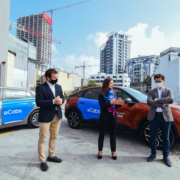eCabs plants 400 evergreen shrubs along St Julian’s promenade
eCabs has partnered up with the St Julian’s local council to beautify St Julian’s promenade with 400 evergreen shrubs.
More than 400 evergreen shrubs are being planted along the St Julian’s promenade, in a collaboration between eCabs and the town’s local council.
The plants, an evergreen coastal shrub of the myrtle family, will dot the promenade stretching from Spinola Bay to Balluta.
They are being planted and maintained by a landscaper engaged by the St Julian’s local council.
The council partnered with eCabs, which is headquartered in St Julian’s, to acquire the shrubs.
eCabs said it believes that embracing different modes of transport is part of the solution towards improving urban spaces. The company has previously pledged to switch its entire fleet to electric vehicles by 2025.
In the press:



